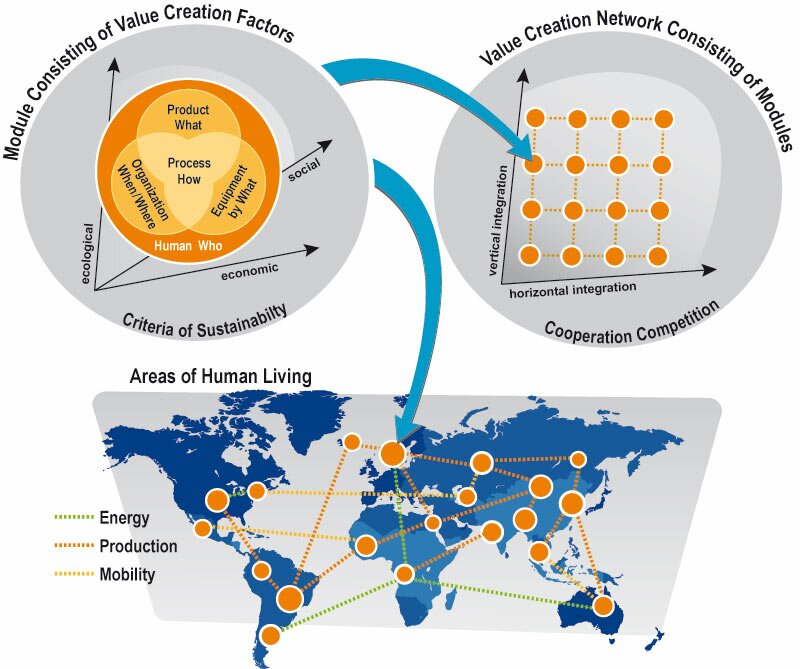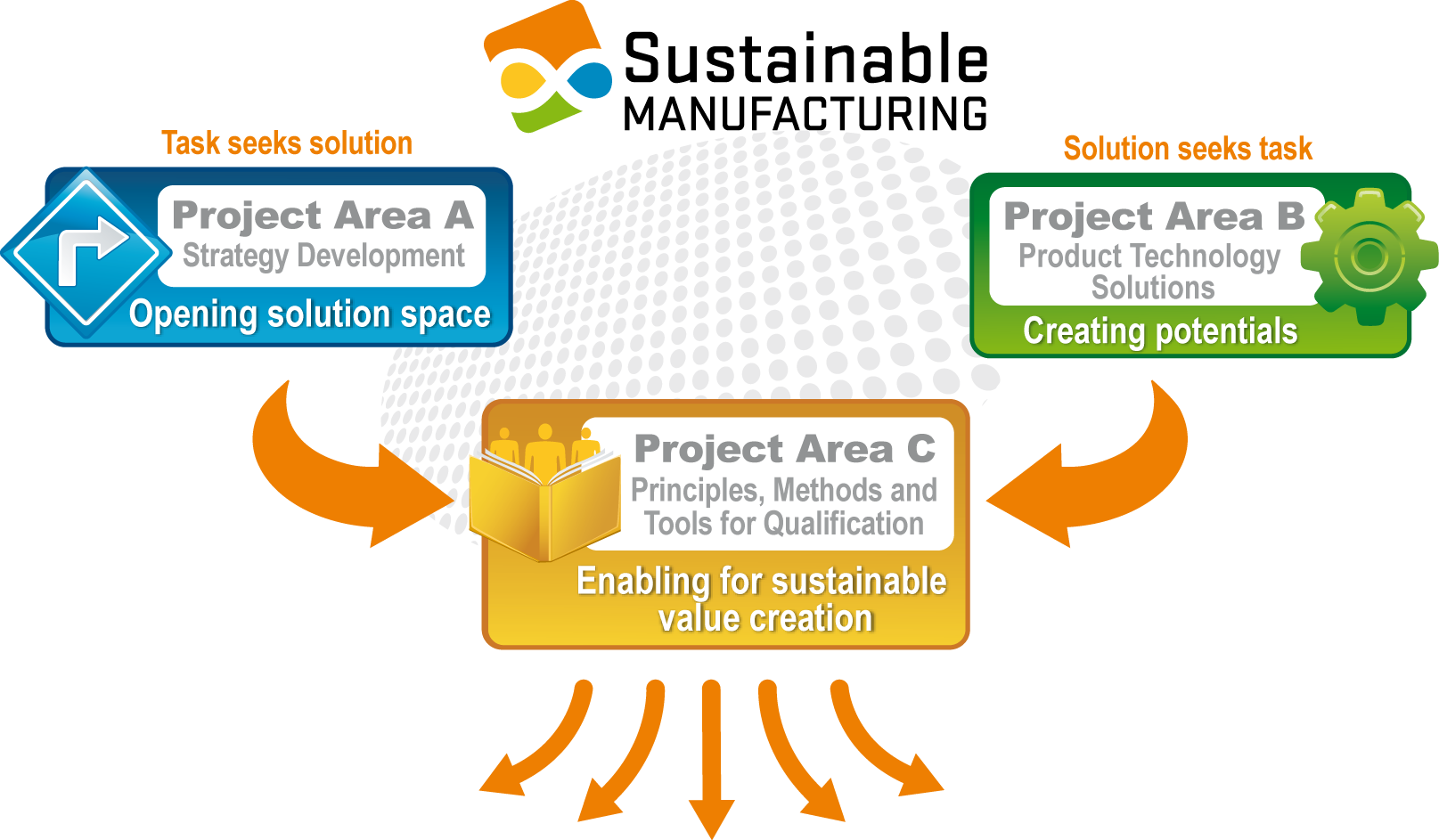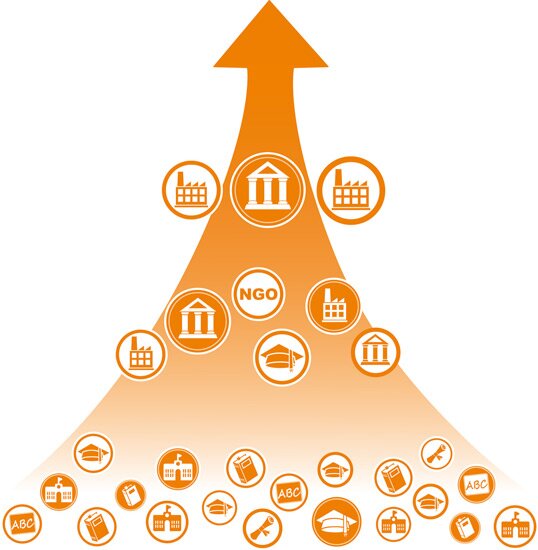Scientific Approach to Sustainable Value Creation
A special architecture integrates the research approaches of the different projects within CRC 1026 into an understanding of sustainable manufacturing:
Value creation is a matter of perspective and can be represented by modules and networks. Modules, in a bottom-up perspective, constitute networks by dynamics of cooperation and competition within the different levels of aggregation from manufacturing cells via lines, factories, enterprises, as well as local, regional, and global consortia in value creation for tangible and intangible products. On the other hand, in a top-down perspective, networks integrate modules horizontally and vertically again on different levels of aggregation. E.g. original equipment manufacturers look for innovative suppliers of physical components or services thus improving their competitiveness. Or communities look for educational partners to improve their social capital and thus their level of wealth.
 |
Modules consist of humans, processes, equipment, organization and product as so-called "value creation factors". They can be created or adapted in consecutive usage phases within product life cycles along setting up or modifying these factors. Modules are to be modeled and valuated on different levels of aggregation e.g. from a single workplace for component manufacturing to regional value adding in production equipment for mobility or energy as areas of human living. Valuation of modules in the sustainability perspective is no longer limited to economic criteria but also includes environmental and social factors.
Interdisciplinary Research for Sustainable Manufacturing
The TU Berlin is the institutional core of the CRC 1026. Disciplinary science clusters within CRC 1026 are manufacturing and environmental engineering, economics and mathematics. The collaboration of the four disciplinary science clusters is considerably inspired by the respective global science networks and close relations to practical implementation in science and industry in different regions of the globe.
Manufacturing engineering is by TUB Department of Machine Tools and Factory Management (IWF) withinthe school of mechanical engineering and transport systems cooperatively connected with Fraunhofer-Institute for Production Systems and Design Technology (IPK) in the common building of Production Technology Center (PTZ). Specific competences for materials and testing in manufacturing are provided by the Federal Institute of Materials Research and Testing (BAM) Berlin. Electronic competence for manufacturing equipment development is provided by TUB Research Center for Microperipheric Technologies and Fraunhofer Institute for Reliability and Microintegration (IZM). Environmental engineering is from TUB school of process sciences Department of Environmental Technology (ITU) and from TUB school of planning, building, environment Department of Landscape Architecture and Environmental Planning. Economics is from TUB Department of Economics and Economic Law connected with Social Science Research Centre Berlin (WZB). TUB Department of Mathematics in cooperation with Zuse Institute Berlin (ZIB) both integrated in the Berlin mathematical research network provide the mathematical competence.
Project Areas
 |
The CRC 1026 combines the breadth of systemic reference in pathways for sustainable technology, their assessment, valuation and mathematical modelling in project area A with exemplary in-depth realization in project area B. Those examples have been chosen from the fields of manufacturing processes and equipment, virtual systems for product development and organization of sustainable value creation in product and material cycles on different levels of aggregation. These two perspectives of the project areas A and B are merged in project area C for methods and tools creating social capital, enabling humans for learning and teaching help for self-help.
 |
As knowledge is the only resource not being reduced but expanding by utilization, a strong leverage can be expected from the manifold contents of knowledge management in the different projects. Consequently service projects on information infrastructure, on public awareness for mutual exchange of ideas with societal stakeholders, and an integrated research training group for TU Berlin doctoral students from different continents becoming ambassadors of sustainable manufacturing in their native countries and universities have been established in addition to the project areas with their own fields of research respectively.

![English [Beta] English [Beta]](/sfb1026_3.3-theme/images/language/en_GB.png)

